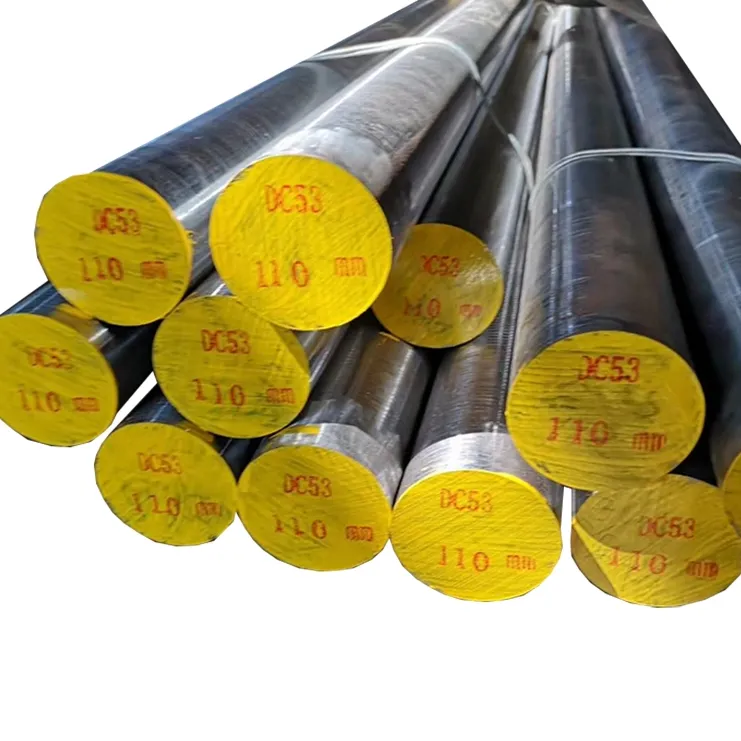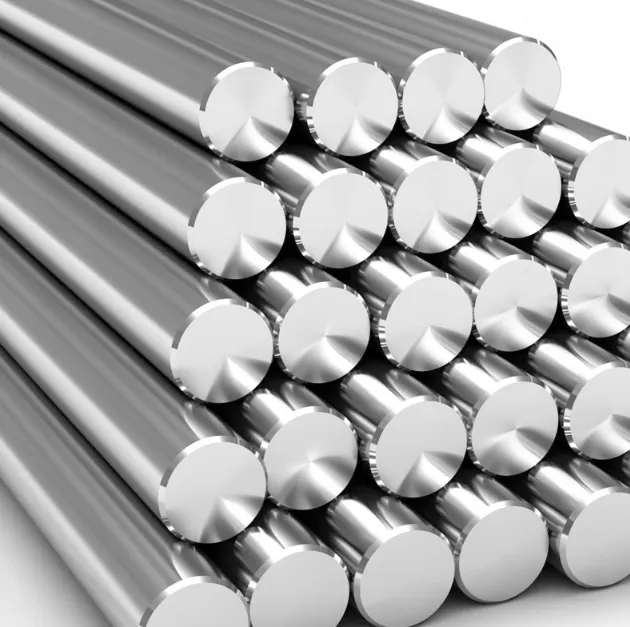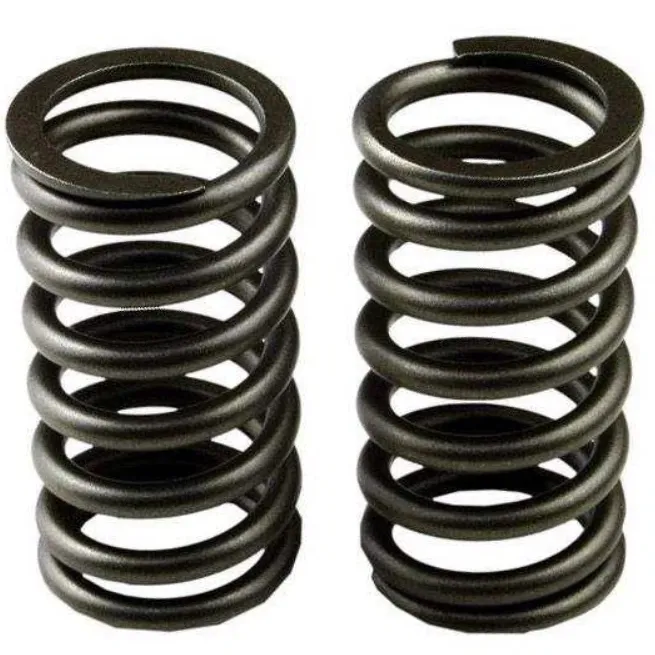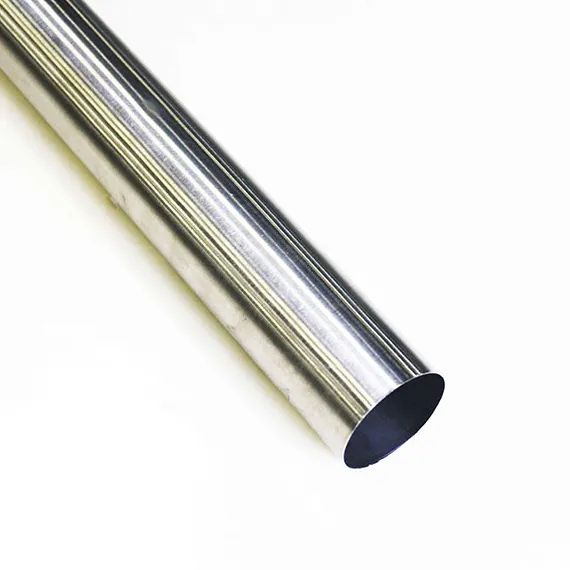API 5CT P110 casing tubing represents one of the most critical components in modern oil and gas drilling operations, offering exceptional strength characteristics with minimum yield strength of 110,000 psi.
What is a P110 Pipe?
P110 pipe designates a specific grade classification within the American Petroleum Institute (API) 5CT specification system. This seamless steel casing and tubing product delivers superior mechanical properties through controlled manufacturing processes and precise chemical composition.
We manufacture P110 pipes using high-quality carbon steel alloys that undergo specialized heat treatment procedures. The designation "P110" indicates the minimum yield strength rating of 110,000 pounds per square inch, making it suitable for wells with extreme pressure conditions and corrosive environments.
The pipe construction follows stringent API standards, ensuring consistent wall thickness, dimensional accuracy, and metallurgical properties throughout the entire length. Our production facilities maintain ISO certification and comply with international quality management systems.
What is the Chemical Composition of API 5CT P110 Tubing?
The chemical composition of API 5CT P110 tubing follows precise specifications to achieve optimal mechanical properties and corrosion resistance.
| Element | Weight Percentage (%) | Purpose |
|---|---|---|
| Carbon (C) | 0.25-0.35 | Strength and hardness |
| Manganese (Mn) | 0.80-1.50 | Hardenability and strength |
| Phosphorus (P) | ≤0.030 | Controlled for ductility |
| Sulfur (S) | ≤0.030 | Minimized for toughness |
| Silicon (Si) | 0.20-0.60 | Deoxidation and strength |
| Chromium (Cr) | 0.40-1.50 | Corrosion resistance |
| Nickel (Ni) | ≤0.99 | Toughness enhancement |
| Copper (Cu) | ≤0.35 | Atmospheric corrosion resistance |
| Molybdenum (Mo) | 0.15-0.25 | High-temperature strength |
This carefully balanced composition provides the necessary hardenability while maintaining weldability and toughness characteristics essential for downhole applications.
What are the Mechanical Properties of API 5CT P110 Tubing?
The mechanical properties of API 5CT P110 tubing demonstrate exceptional performance parameters that make it suitable for demanding drilling environments.
| Property | Value | Unit |
|---|---|---|
| Minimum Yield Strength | 110,000 | psi (758 MPa) |
| Maximum Yield Strength | 140,000 | psi (965 MPa) |
| Minimum Tensile Strength | 125,000 | psi (862 MPa) |
| Elongation (minimum) | 15 | % in 2 inches |
| Hardness Range | 23-30 | HRC |
| Impact Energy (minimum) | 20 | ft-lbs at -10°F |
| Elastic Modulus | 30,000,000 | psi (207 GPa) |
These properties result from controlled quenching and tempering processes that optimize the microstructure for maximum strength and toughness combination.
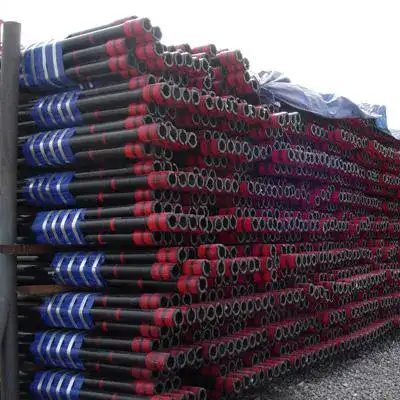
What is the Specification of API 5CT P110 Tubing?
API 5CT P110 tubing specifications encompass dimensional tolerances, threading requirements, and performance standards established by the American Petroleum Institute.
| Specification Category | Requirement | Standard |
|---|---|---|
| Outside Diameter Range | 4.500" - 20.000" | API 5CT |
| Wall Thickness Tolerance | ±12.5% nominal | API 5CT |
| Length Range | R1: 16-25 ft, R2: 25-34 ft, R3: 34+ ft | API 5CT |
| Threading | 8 Round, Buttress, Extreme-line | API 5CT |
| Straightness | 0.2% of length | API 5CT |
| Surface Finish | 125 μin Ra maximum | API 5CT |
| Drift Diameter | 95% of nominal ID | API 5CT |
| Hydrostatic Test | 80% of minimum yield | API 5CT |
Manufacturing tolerance controls ensure consistent performance across all dimensional parameters, critical for proper downhole installation and sealing integrity.
What does P110 Stand For?
P110 stands for "Premium grade with 110,000 psi minimum yield strength." The "P" designation indicates a premium steel grade that has undergone specialized heat treatment to achieve enhanced mechanical properties.
Within the API 5CT grading system, the numerical portion "110" directly corresponds to the minimum yield strength expressed in thousands of pounds per square inch. This nomenclature system allows engineers to quickly identify the strength characteristics without consulting detailed specification sheets.
The premium classification requires additional quality control measures during manufacturing, including more stringent chemical analysis, mechanical testing, and dimensional verification procedures.
What is the Difference Between API 5L and API 5CT?
API 5L and API 5CT serve distinctly different applications within the petroleum industry, each with specialized requirements and performance criteria.
API 5L governs line pipe specifications for transportation of oil, gas, and water in pipeline systems. These pipes operate under relatively stable pressure and temperature conditions over extended periods.
API 5CT regulates casing and tubing for drilling and production operations. These products must withstand dynamic loading, corrosive downhole environments, and extreme pressure variations during well completion and production phases.
Key differences include wall thickness requirements, collapse resistance specifications, and connection integrity standards. API 5CT products undergo more rigorous testing protocols due to the harsh operational environment they encounter.
The metallurgical requirements also differ significantly, with API 5CT grades requiring enhanced toughness and corrosion resistance properties not specified in API 5L standards.
What is the Hardness of API 5CT P110?
The hardness specifications for API 5CT P110 ensure optimal balance between strength and toughness characteristics required for downhole applications.
| Hardness Scale | Range | Application |
|---|---|---|
| Rockwell C (HRC) | 23-30 | Standard specification |
| Brinell (HB) | 235-285 | Alternative measurement |
| Vickers (HV) | 245-295 | Laboratory verification |
| Shore D | 78-85 | Field testing |
Hardness testing occurs at multiple locations along the pipe length to verify uniform heat treatment results. We conduct testing on both the pipe body and threaded connections to ensure consistent properties throughout the entire product.
The specified hardness range provides sufficient strength for high-pressure applications while maintaining adequate toughness to resist brittle fracture under impact loading conditions.
What is the Classification of API 5CT P110 Tubing?
API 5CT P110 tubing classification encompasses multiple categories based on manufacturing process, connection type, and performance characteristics.
| Classification Type | Options | Description |
|---|---|---|
| Manufacturing Process | Seamless, Welded | Production method |
| Heat Treatment | Quenched & Tempered | Strength enhancement |
| Connection Type | 8RD, BUT, EUE, NEW VAM | Threading specification |
| End Finish | Plain End, Threaded | Coupling requirement |
| Length Range | R1, R2, R3 | Dimensional category |
| Grade Category | Premium | Quality classification |
| Upset Type | Non-upset, External upset | End configuration |
Each classification parameter affects the performance characteristics and application suitability of the final product.
API 5CT P110 Tubing Global Market Prices 2025
Current global market pricing for API 5CT P110 tubing reflects regional manufacturing capabilities, transportation costs, and local demand patterns.
| Region | Price Range (USD/Ton) | Market Factors |
|---|---|---|
| North America | $1,850 - $2,200 | High quality standards |
| Europe | $1,950 - $2,350 | Environmental regulations |
| Middle East | $1,750 - $2,050 | Regional production |
| Asia Pacific | $1,650 - $1,950 | Manufacturing hub |
| South America | $1,900 - $2,250 | Import dependency |
| Africa | $2,000 - $2,400 | Limited local production |
Price variations reflect quality differentials, certification requirements, and logistics considerations specific to each geographical market.
API 5CT P110 Tubing Sizes and Weight Parameters
Standard sizing and weight specifications for API 5CT P110 tubing provide comprehensive options for various well configurations and operational requirements.
| Outside Diameter | Wall Thickness | Weight (lb/ft) | Inside Diameter |
|---|---|---|---|
| 4.500" | 0.224" | 9.50 | 4.052" |
| 5.000" | 0.253" | 11.50 | 4.494" |
| 5.500" | 0.244" | 12.60 | 5.012" |
| 6.625" | 0.288" | 17.00 | 6.049" |
| 7.000" | 0.317" | 20.00 | 6.366" |
| 7.625" | 0.328" | 22.40 | 6.969" |
| 8.625" | 0.352" | 28.00 | 7.921" |
| 9.625" | 0.395" | 35.30 | 8.835" |
| 10.750" | 0.400" | 40.50 | 9.950" |
| 13.375" | 0.480" | 61.00 | 12.415" |
Weight calculations include standard manufacturing tolerances and are based on nominal steel density of 0.2836 pounds per cubic inch.
Advantages of API 5CT P110 Tubing
API 5CT P110 tubing offers numerous advantages that make it the preferred choice for demanding drilling and production applications.
Superior strength characteristics enable operation in high-pressure environments where conventional grades prove inadequate. The enhanced yield strength provides greater collapse resistance, critical for deep well applications.
Improved corrosion resistance results from optimized chemical composition and heat treatment processes. This characteristic extends service life in sour gas environments and reduces maintenance requirements.
Manufacturing consistency ensures predictable performance across all dimensional and mechanical parameters. Quality control systems minimize variation between production lots, reducing field installation problems.
Connection integrity remains superior due to controlled threading processes and premium coupling materials. Leak-tight performance under extreme conditions reduces operational risks and environmental concerns.
Cost-effectiveness emerges from extended service life and reduced failure rates compared to lower-grade alternatives. The initial investment premium recovers through improved operational reliability.
Iraq Procurement Case Study
In 2024, the Iraqi Ministry of Oil awarded a substantial contract for API 5CT P110 tubing to support the Rumaila oil field expansion project. This procurement involved 15,000 tons of various sizes ranging from 5.5" to 9.625" outside diameter.
The project specifications required full API 5CT compliance with additional requirements for hydrogen sulfide resistance due to sour gas conditions in certain reservoir sections. We supplied premium grade P110 tubing with specialized heat treatment to meet these demanding requirements.
Delivery occurred in phases over eight months, coordinating with drilling schedules to minimize storage requirements at the wellsite. Each shipment included comprehensive material certificates and third-party inspection reports.
The successful completion of this project resulted in a 15% reduction in tubular failures compared to previous installations using lower-grade materials. Production efficiency increased due to reduced maintenance downtime and improved well integrity.
This case demonstrates the value proposition of premium grade materials in challenging operational environments where reliability takes priority over initial cost considerations.
Frequently Asked Questions
Q1: How does P110 grade compare to other API 5CT grades?
P110 offers higher strength than grades like J55 and N80, making it suitable for deeper wells and higher pressure applications. The minimum yield strength of 110,000 psi provides superior collapse resistance compared to conventional grades.
Q2: What is the typical service life of API 5CT P110 tubing?
Service life varies based on operating conditions, but properly installed P110 tubing typically provides 15-20 years of reliable service in normal production environments. Aggressive conditions may reduce this timeframe.
Q3: Can P110 tubing be welded in field applications?
P110 tubing can be welded using appropriate procedures and qualified welders. Preheating and post-weld heat treatment may be required depending on the application and local codes.
Q4: What inspection methods verify P110 tubing quality?
Standard inspection includes dimensional measurement, hydrostatic testing, non-destructive examination, and mechanical property verification. Additional tests may include sulfide stress cracking resistance and corrosion testing.
Q5: How should P110 tubing be stored at the wellsite?
Proper storage requires protection from moisture, elevated temperature conditions, and mechanical damage. Tubing should be stored on appropriate racks with thread protectors installed to prevent contamination.
Q6: What are the threading options for P110 tubing?
Standard threading options include 8 Round, Buttress, and Extreme-line connections. Premium connections like VAM TOP and others are also available for specific applications requiring enhanced performance.
Q7: Is P110 tubing suitable for steam injection applications?
P110 tubing can handle moderate temperature steam injection with proper design considerations. Higher temperature applications may require specialized grades or protective measures.
Q8: What certification accompanies P110 tubing shipments?
Each shipment includes mill test certificates, API monogram verification, chemical analysis reports, mechanical property test results, and dimensional inspection records. Third-party inspection certificates are available upon request.
Conclusion
API 5CT P110 casing tubing continues to serve as an essential component in modern drilling operations, providing the strength and reliability needed for challenging downhole environments. Its superior mechanical properties, combined with proven performance in field applications, make it the optimal choice for operators prioritizing well integrity and operational efficiency.
The comprehensive specifications and quality standards ensure consistent performance across diverse geological conditions and operational requirements. As drilling operations extend into deeper and more challenging formations, the importance of premium grade materials like P110 becomes increasingly critical for successful project outcomes.
References
- American Petroleum Institute - API Standards and Specifications
- ISO 11960:2020 - Petroleum and natural gas industries specifications
- National Institute of Standards and Technology - Steel Properties Database
- ASME B31.3 - Process Piping Code Requirements
- ASTM International - Petroleum Products Standards

